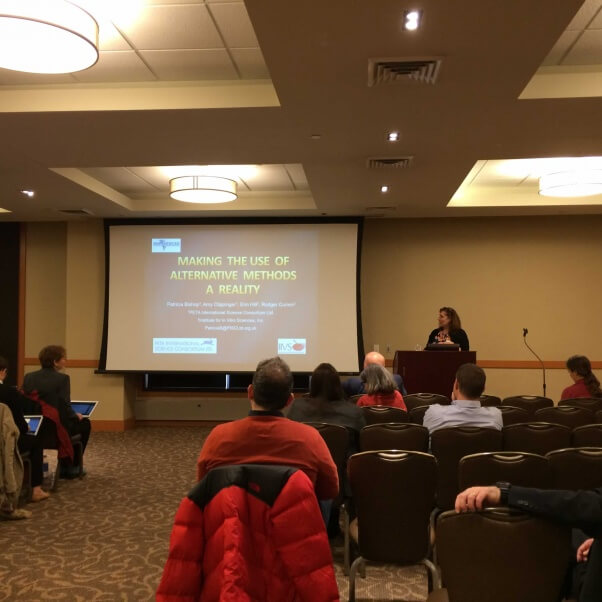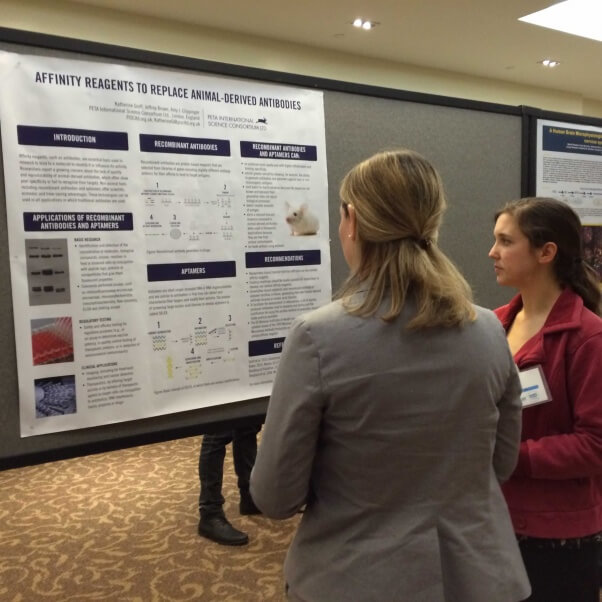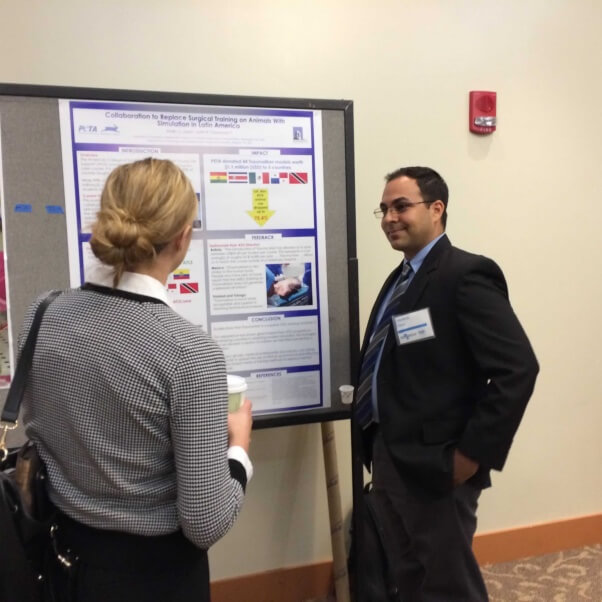Scientists Converge on Johns Hopkins to Discuss Animal-Free Labs
Scientists from across the Americas gathered at Johns Hopkins University for the Pan American Conference for Alternative Methods to share information on animal-free testing methods. The PETA International Science Consortium Ltd. cosponsored the event, which focused on reducing and replacing experiments on animals.
The Science Consortium’s presentations described modern non-animal test methods that can replace current tests on animals and how to make the transition.

One such presentation described human-relevant non-animal methods that can replace eye irritation testing in animals. In this antiquated test, which dates back to the 1940s, experimenters drip a substance into rabbits’ eyes and record the damage that it causes for up to two weeks. There is no requirement to give the animals painkillers.
The Science Consortium also presented a poster on antibodies, tools used in scientific research. The poster highlighted the advantages of replacing animal-derived antibodies with modern antibodies, which can save researchers time and money and improve the reproducibility of research while also sparing tens of thousands of animals.

PETA also spoke about its groundbreaking partnership with Simulab Corporation, the maker of life-like human-patient simulators, as well as trauma surgeons to replace the use of live dogs, pigs, and goats in surgical training exercises as part of Advanced Trauma Life Support programs in Bolivia, Costa Rica, Mexico, Panama, and Trinidad and Tobago. This innovative partnership has improved medical education, reduced training costs, and saved animals’ lives.

What You Can Do
Please ask the U.S. Food and Drug Administration to accept superior non-animal methods in place of archaic and unreliable tests on animals.

